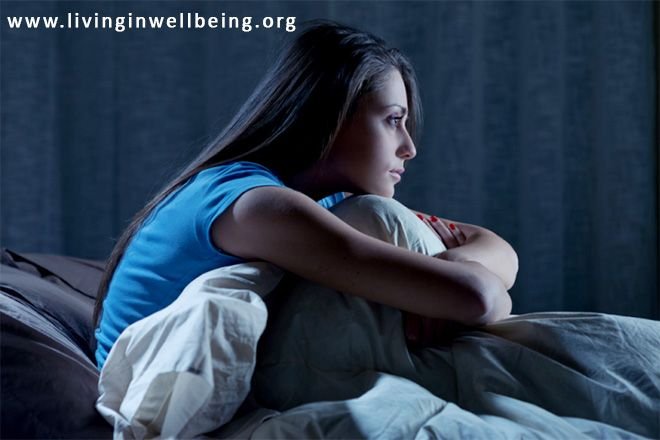
Sleep is an important ingredient for health. It may be more important than we realize. A recent study from Fitbit discovered that the average night's sleep in India is 6.55 hours. That is significantly less than the 7-8 that are recommended for the average adult. Luckily there are many options for those who suffer from lack of shut eye. Trying to make little changes, like adjusting your sleeping position can help. Let's look at the downsides of not getting enough sleep and some possible solutions.
Sleep Deprivation Can Affect All Areas of Your Life
Weight gain and obesity: Not getting enough sleep can interfere with the secretion of hormones that tell you you are hungry and full. If you do not sleep enough, your body may tell you you are hungry when you are not, and have trouble sensing when you are full. Sleep loss is related to food cravings for high fat, high carbohydrate foods, which tend to be empty calories, furthering weight gain.
Memory Loss:
Sleep is when the brain organizes itself and moves memories from short term to long term. In deep sleep, the brain experiences something called “sharp wave ripples”. This is where memory is moved from the hippocampus to the neocortex. If sleep is interrupted than this process is disturbed, lessening the ability to remember well.
Faulty Brain Function:
When the brain is not able to recharge, agility and function are decreased. More than 1,500 deaths are caused every year by people asleep behind the wheel, according to UCLA Health. Loss of sleep also increases the amount of accidents at work and sick days.
Immune System Deficiency:
A lack of sleep can cause a reaction on the body as if it has undergone a large amount of stress. This results is fewer antibodies being made, decreasing your body's defenses. According to some estimates, 90% of people who suffer from insomnia also suffer from other health disorders such as high blood pressure, stroke, diabetes, and heart disease.
Mental Health Issues:
Extreme sleep deprivation can result in hallucinations, paranoia, or confusion. This can agitate or create mental health problems. Sometimes, a lack of sleep can be misdiagnosed as a mental health issue because the symptoms tend to look similar.
Difficulty Conceiving:
Regularly skipping on sleep can lower testosterone and the female hormones associated with ovulation. Without these hormones the body will have a harder time conceiving. A lack of sleep can also lower libido in both sexes. This is another consequence of lowered testosterone. Sleep apnea in men, is particularly related to lower testosterone and lower sex drive.
Heart Health Problems/Stroke:
A lack of sleep can affect the circulatory system and can also cause inflammation, making a blood clot more likely. A blood clot could travel to your brain and stop the flow of blood, causing a stroke. When the body is in deep sleep, certain chemicals signal your blood pressure to lower, but when the body does not achieve this deep sleep state the heart can be affected by high blood pressure.
Diabetes:
Skipping out on sleep can affect the way the body processes glucose, which affects the development of diabetes. As mentioned above it can also affect weight gain, another contributing factor to diabetes. Diabetes can also cause lack of sleep. As your blood sugar level surges, your kidneys will try to stabilize by urinating. Thus, causing a person to get up several times a night, exacerbating sleep loss.
Depression/Anxiety:
The hormone melatonin is responsible for both sleep cycles and mood regulation. Studies show that people affected by insomnia are often lower in melatonin than people who are not. In a study of 10,000 people, those who had experienced insomnia were 10 times as likely to experience depression. Conversely, one of the first symptoms of depression can be insomnia.
Notable Skin Aging:
When you don´t sleep, the body releases more of the stress hormone cortisol. Cortisol breaks down the collagen in your skin, which is responsible for elasticity. This results in saggier skin. Dark under eye circles are another side effect of sleep loss. Loss of sleep also decreases human growth hormone, which is responsible for skin and other organ repair.
Solutions Are Available
It might seem like a bleak situation if you only look at the downsides of sleep deprivation, however, there are many solutions available to help with your night's sleep. For example, cutting down on caffeine can help you to rest better at night. In fact drinking coffee before bed, delays your inner clock by 40 minutes, according to Science Translational Medicine. A bed can also make a nice difference in sleep ability. Those who are sleeping on a couch should consider using a futon instead for a more comfortable sleep experience. Getting 30 minutes of exercise has been known to increase sleep time by 14 minutes. Another solution could be aromatherapy. Scents such as lavender can reduce blood pressure and lower heart rate, reversing some of the harmful effects of sleep deprivation.
Sleep deprivation is a serious health issue. It is important to understand how it can affect your total health experience. With such high consequences for not getting enough sleep, it is certainly worth it to try to improve your experience in order to live your best life.












